Pride and Passion: Jane Austen novels the Brazilian way
- Published
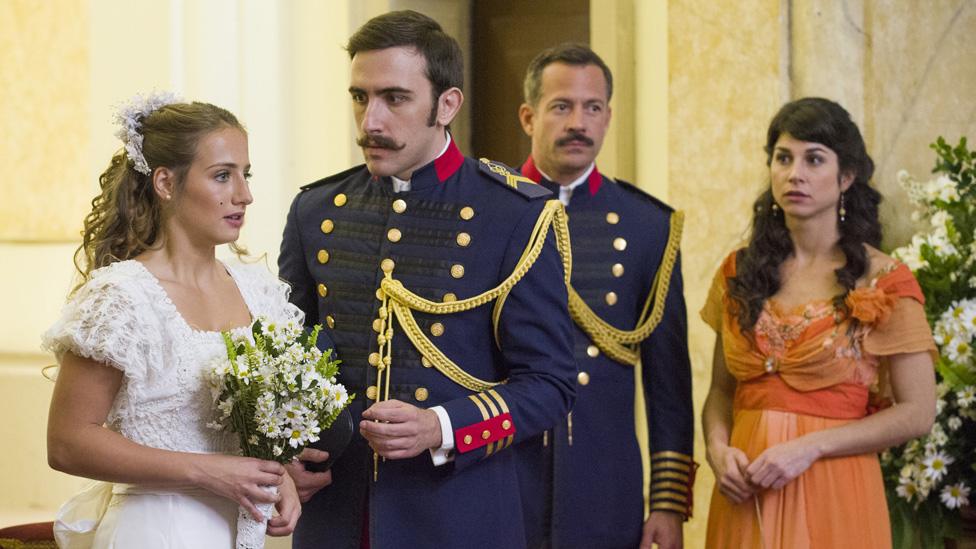
Otávio looks worried and so he should; he is about to be jilted by Lídia Benedito
It is Pride and Prejudice, but not as Jane Austen fans know it. Lydia Bennet leaves her groom at the altar, running out of the church in pursuit of Mr Wickham, the father of her unborn child.
"Help!" shouts Mr Wickham, who was tricked into coming and did not know she was pregnant.
"He came back to rescue me," Lydia exclaims to her mother, a little optimistically. "Let's get married and take care of our little boy together. It's going to be beautiful."
Mrs Bennet, meanwhile, all but faints.
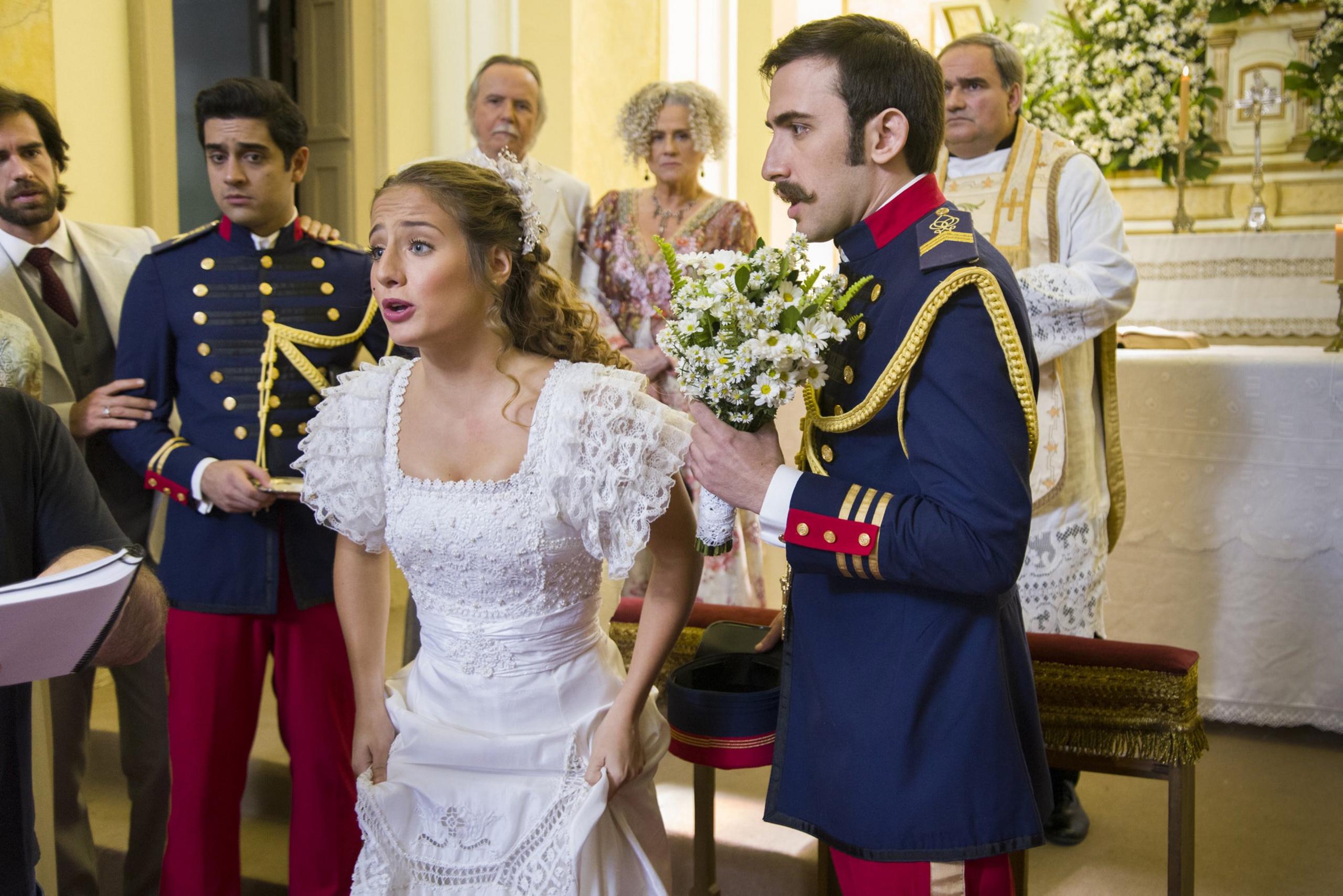
Should you be getting worried when your bride lifts up her skirt ready to run? If you are Otávio, then yes
The scene comes from the novela Orgulho e Paixão (Pride and Passion), which recently finished its six-month run on Brazil's Globo television network. The lavishly funded drama had several radical twists on five of Jane Austen's novels, introducing sex, violence and intrigue.
"Taking inspiration from Jane Austen we created a new story with new characters," said artistic director Fred Mayrink. "A new universe that speaks clearly to a Brazilian novela audience."
Similarities and disparities
Indeed, the show ended up in dispute with regulators over explicit content in its 18:00 timeslot but it also won praise for the way it dealt with storylines about homosexuality and feminism.

You may also be interested in:

With 100 hours of airtime to fill, the soap opera blended the novels Pride and Prejudice, Sense and Sensibility, Emma, Northanger Abbey and Lady Susan. Writer Marcos Bernstein said he wished he could have integrated a sixth novel, Persuasion, but could not find a way.
Like Pride and Prejudice, the central Benedito family has five daughters whom the matriarch Ofélia is keen to see married to appropriate men.
And similarly, the lead character, Elisabeta, is a free spirit ahead of her time who is capable of charming or alienating suitors.
But then the disparities start. Only three of the daughters - Elisabeta, Jane and Lídia - are from that novel. The other two - Mariana and Cecília - are from Sense and Sensibility and Northanger Abbey. Elisabeta's best friend is Ema Cavalcante, from the novel Emma.
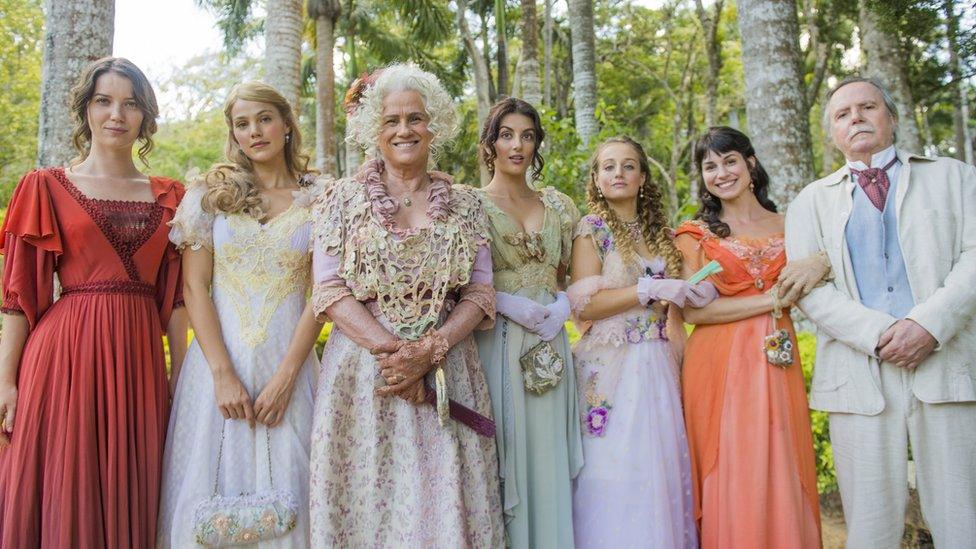
Five daughters, but not the ones you may be expecting...
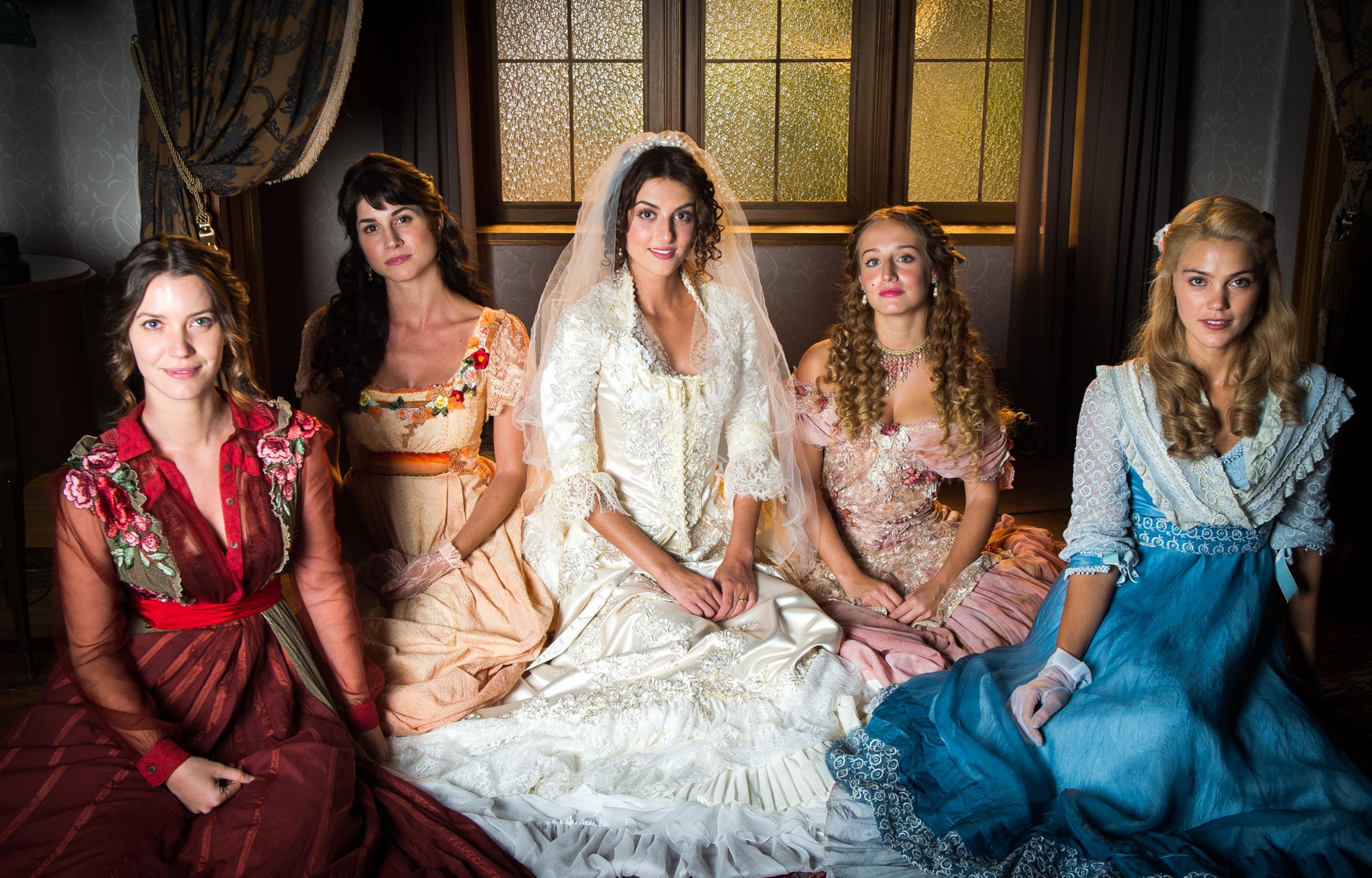
With lavish costumes and settings, Globo has not skimped on this soap opera
"The plot of Pride and Prejudice is great but not particularly complex," Mr Bernstein said. "Even a series adaptation takes up about eight hours. With the dynamic rhythm of a telenovela, things need to happen fast. If I had used only one book, it would have finished in three days."
Instead of being set in the rarefied country houses of 19th-century England, Bernstein moved it forward 100 years to the era of wealthy coffee barons in the countryside of southern Brazil.
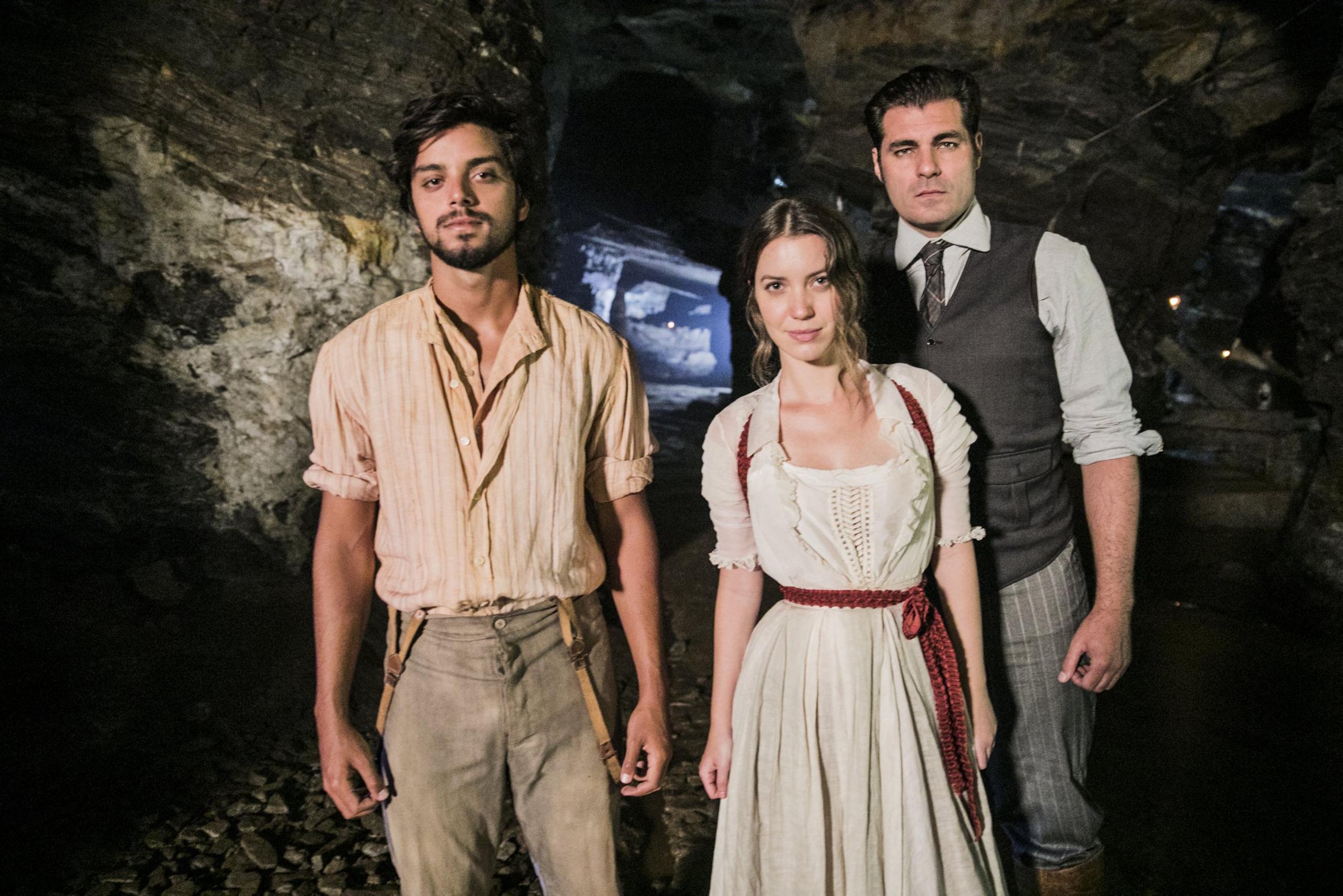
In the Brazilian version, Darcy goes down the mine
"It allowed us to have these characters who are the children of rich families that don't work and go to lavish parties," he said. "At the time, female emancipation was already beginning."
Deemed not suitable for children
Pride and Passion has scenes to make the original Mrs Bennet raise her eyebrows. In one, Darcy's friend Camilo (Charles Bingley from Pride and Prejudice) signs up for a clandestine fight club. In another, his mother Julieta overcomes the trauma of having been raped by her husband by having a night of passion with her new fiance.
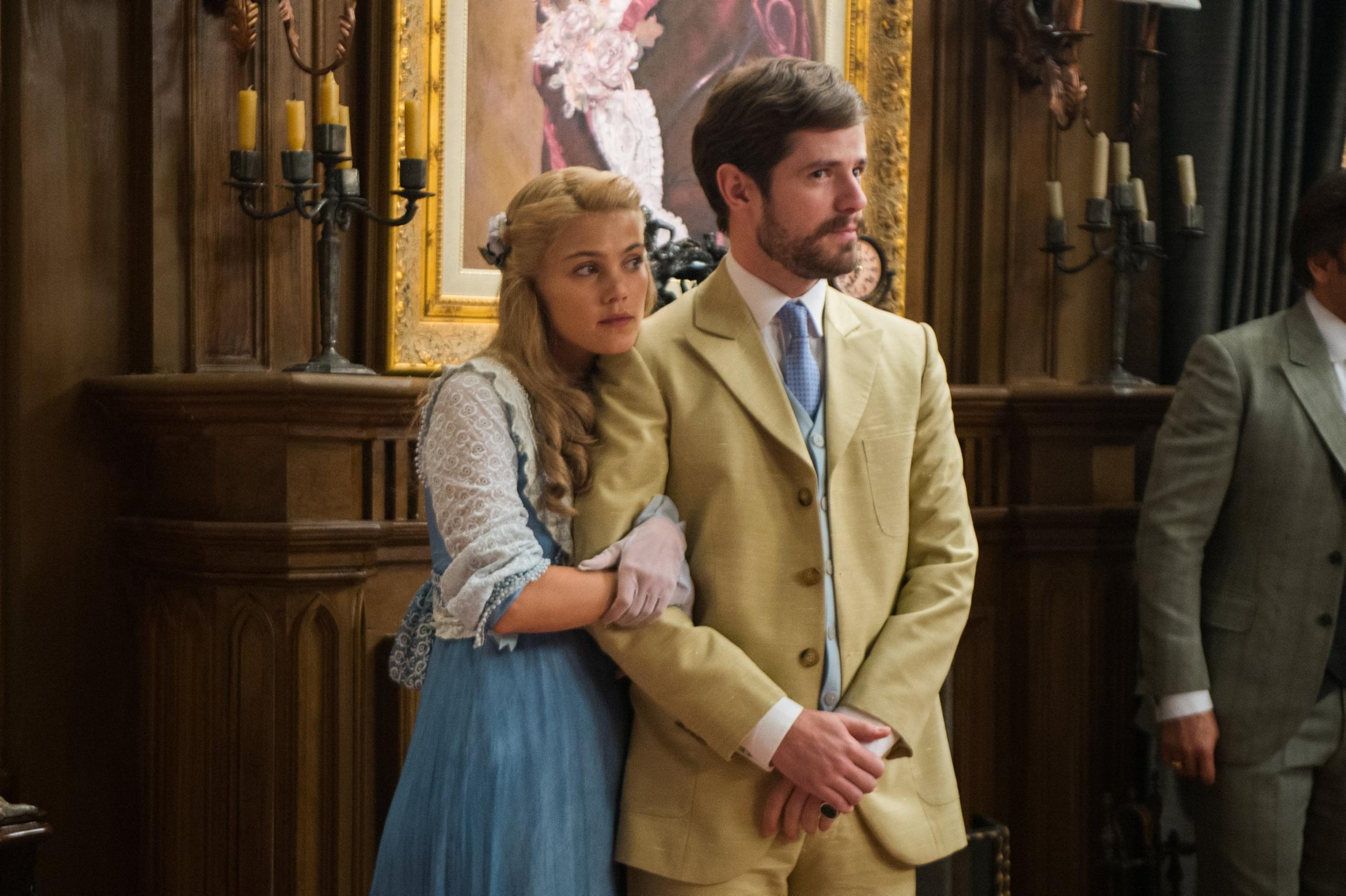
In a modern twist, Camilo signs up for a fight club
Such scenes led the ministry of justice to reject it as unsuitable for anyone under the age of 12.
There are also more subtle differences in the translation from the original English characters. Couples are seen kissing and touching each other, even bathing together in a waterfall.
"It isn't possible to make the characters as reserved or as restrained. Our story takes place 100 years later," said Mr Bernstein. "It is more Downton Abbey than Jane Austen."
But a major plotline, when Elisabeta faces internal conflict when she meets a rich and aristocratic man called Darcy, will be familiar to any Jane Austen fan. "We decided to try and introduce softer elements to his behaviour," said the actor Thiago Lacerda.
"People immediately understood there was some rigidity but our Darcy was a more Brazilian Darcy."
Pregnancy not a drama
And the Brazilian Mrs Bennet is also more relaxed. Even when Lídia gets pregnant, "she sees it as something that will pass and as part of everyday life", says actress Vera Holtz.
The show has also sought to push boundaries, in one scene featuring a precedent-setting gay kiss. In another, Elisabeta goes to a party dressed in trousers as a feminist statement.
Fans of the Jane Austen Society, which has 4,000 members in Brazil, keenly anticipated the arrival of the novela. Its president, Adriana Sales, who recently completed her PhD titled Jane Austen and her Digital Fandom, said reaction among hardcore fans was strongly divided.
"There were two separate groups, those who thought it was enjoyable and those who were very disappointed as they were hoping for a more faithful adaptation."
But, she thought, "it was valid as it disseminated the author to a wide Brazilian audience."
For the director Fred Mayrink, "It's beautiful to borrow cultural references from other countries and develop a story based on that literature. Jane Austen permeates the entire novela because she is present in its universe, its tone, and the day-to-day life of the characters."
Additional reporting by Shanna Hanbury.
- Published7 September 2017
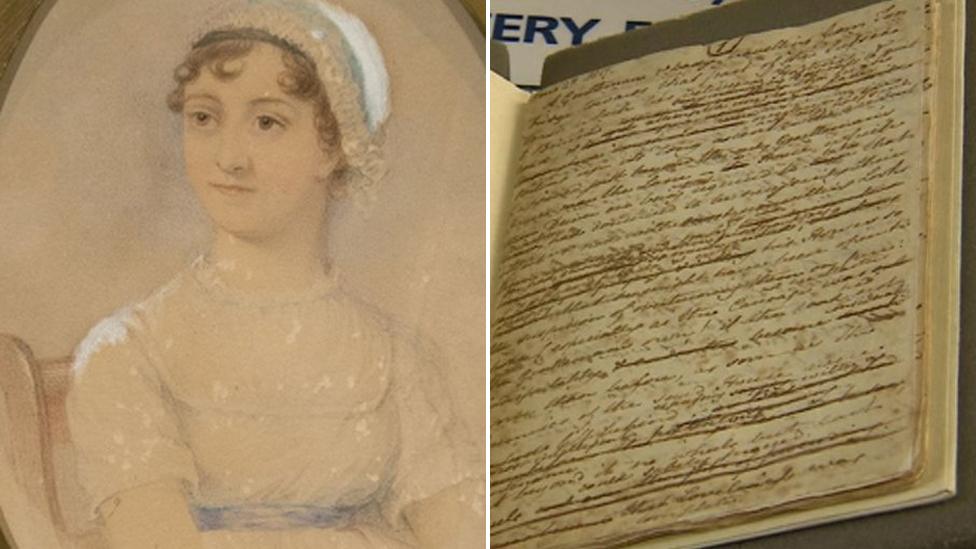
- Published17 September 2016

- Published16 September 2016

- Published3 February 2014

- Published19 October 2012
